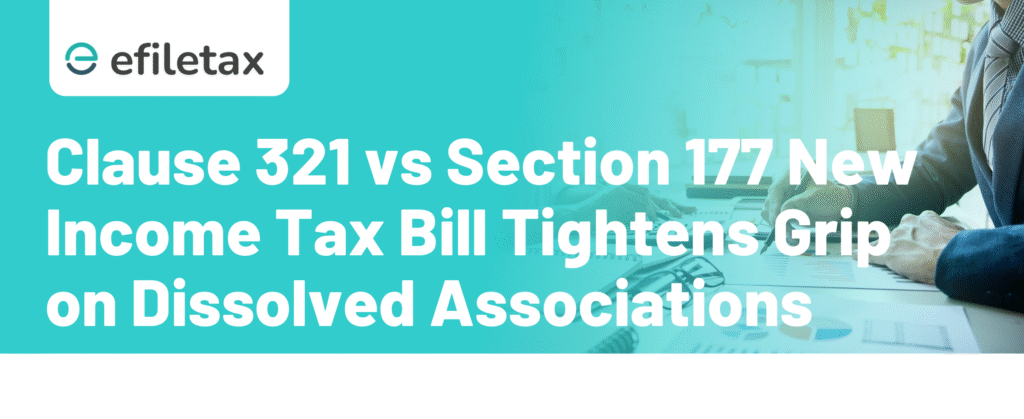
Introduction
Assessment for dissolved associations has often confused taxpayers during winding up. The Income Tax Bill 2025 brings in Clause 321, refining how tax liabilities are enforced after dissolution. Let’s decode how it aligns with or changes Section 177 of the current Income-tax Act, 1961.
What Section 177 Says About Dissolved Associations
Under Section 177 of the Income-tax Act, 1961:
- If an association of persons (AOP) or body of individuals (BOI) is dissolved:
- Tax can still be assessed as if it hadn’t dissolved.
- Liability continues for members, jointly and severally.
- Courts have upheld this for winding-up disputes.
Legal Reference:
Check Income-tax Act, 1961 – Section 177 (official source).
Clause 321 in Income Tax Bill 2025: What’s New?
Clause 321 strengthens this concept. Key features:
- Reiterates that dissolution does not end tax accountability.
- Specifically empowers the AO to make an assessment as if the entity exists.
- Allows recovery from:
- Any remaining assets.
- Members, legal representatives, or successors.
Expert View:
Tax professionals welcome this clarity as it removes ambiguity in recovering dues during liquidation or closure.
Comparison: Section 177 vs Clause 321
| Feature | Section 177 (1961 Act) | Clause 321 (2025 Bill) |
|---|---|---|
| Continued Assessment | Yes | Yes, explicit |
| Recovery from members | Joint & several liability | Joint & several liability |
| Specific mention of legal heirs | Implied | Explicit |
| AO’s enforcement powers | Judicially interpreted | Clearly codified |
Practical Implications for Taxpayers
- Dissolution ≠ Escape from tax dues
- Keep proper winding-up accounts.
- File closure returns diligently.
- Consult professionals to limit personal liability.
Tip: Always settle pending taxes before legal dissolution to avoid notices or attachment of personal assets.
FAQs
Q1. Does dissolution close all tax obligations?
No. Tax dues continue even after closure. AO can recover from members or assets.
Q2. Is Clause 321 harsher than Section 177?
Not harsher but clearer. It codifies existing court interpretations to reduce disputes.
Q3. How to avoid issues?
Ensure:
- All returns are filed up to date.
- Clear tax liabilities before winding up.
- Take expert help for compliance.
Key Takeaway (Snippet)
Assessment for dissolved associations stays enforceable under Clause 321 of Income Tax Bill 2025, aligning with Section 177 but with stronger clarity for recovery from members or legal heirs.
Conclusion
The Income Tax Bill 2025 strengthens the tax net for dissolved associations through Clause 321. Taxpayers should plan winding up properly and clear all dues in advance.